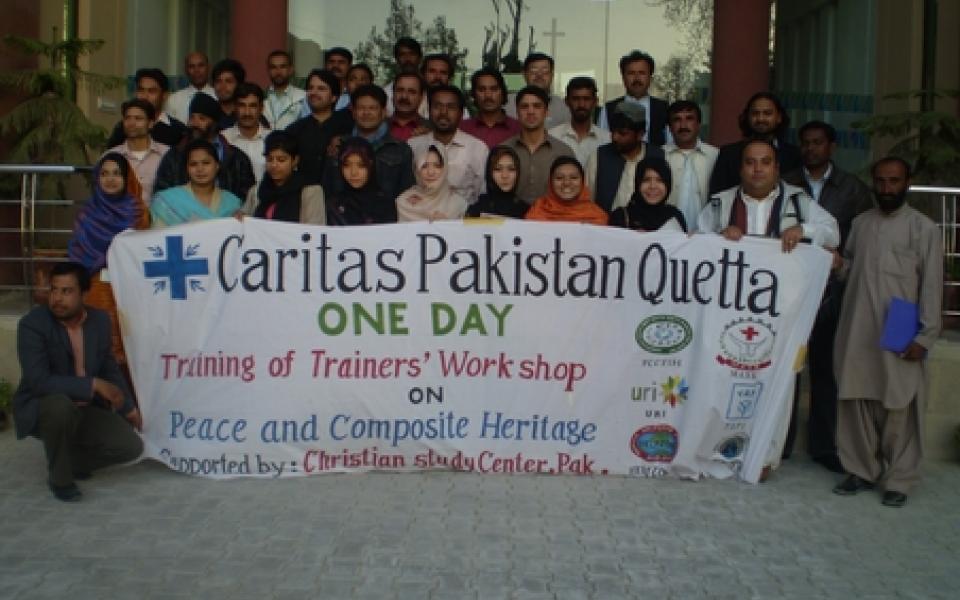
Quetta, Pakistan is not often thought of as a place of interfaith harmony. Situated near the Afghan border, this Sunni majority city has been plagued by sectarian violence, including a bomb attack on a Shia procession in September 2010 that killed 73 people. But a handful of courageous activists are trying to change that.
On March 19, URI’s Roots Cooperation Circle in partnership with Caritas and other NGOs held a one-day workshop to train youth, educators, professionals and other religious and civil society leaders in ways to bridge interreligious divides in their communities.
“We need to know that much of the violence that threatens our society has its roots in bigotry and hate,” said workshop facilitator and Roots CC leader Irfan Ali.
Sixty-five people participated in this Training of the Trainers workshop under the theme “Peace and Composite Heritage.” Special guests included two high-level civil defense officials and an official from the health department.
The first of its kind in Quetta, the workshop focused on the roles that diverse members of society—including students, teachers and the community as well as government and the media—do and should play in shaping attitudes toward religious differences. In a combination of lectures and group discussions, participants learned about various religious traditions as well as strategies for promoting tolerance.
“Today, after the completion of the workshop when we go into our areas, we should educate people not to rely on stereotypes about others,” said Mr. Ali.
Roots CC is at the forefront of a growing interfaith youth movement in Quetta. Its leadership also includes Shazia Wahid, a former URI Youth Ambassador who started the CC in 2010. In the past year the CC has helped organize interfaith events for youth as well as provided flood relief and other community services. Its plans for the future include an interfaith resource center and scripture classes.
Click here to read the full workshop report from Roots CC.
